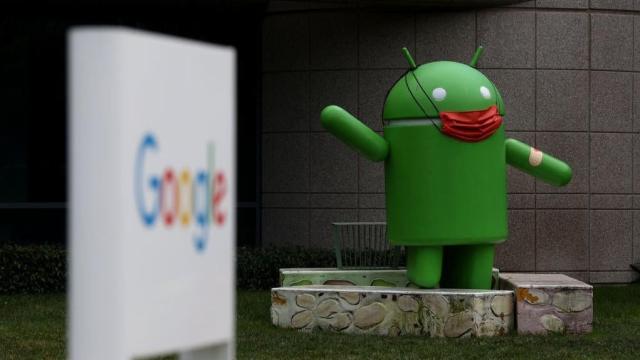The US Department of Justice filed a lawsuit against Google Tuesday, accusing the tech giant of using its market power to create a monopoly in the digital advertising business over the course of 15 years.
Google “corrupted legitimate competition in the ad tech industry by engaging in a systematic campaign to seize control of the wide swath of high-tech tools used by publishers, advertisers and brokers, to facilitate digital advertising,” according to the lawsuit. Eight state attorneys general joined in the suit, filed in Virginia federal court. Google has faced five antitrust suits since 2020.
One Google employee quoted in the Justice Department’s press conference described Google’s ad exchange as an “authoritarian intermediary.”
With the suit, the Justice Department is attempting to force Google to sell its ad technology products, a move that would split up Google’s most valuable business ventures, and diffuse company’s vast power over the internet.
You might think of Google as a technology company with an advertising business, but really its the other way around. The search giant has its fingers in nearly every part of the ad industry. The company’s biggest money maker is Google Search, where promoted results in user queries drive the vast majority of its revenue. And together with Chrome, the world’s most popular browser, Search gives Google control of the world’s biggest funnel of consumer data.
But Google’s ad empire doesn’t stop at services with the word Google in their names. The company also serves a lion’s share of the ads across apps and websites owned by other companies. Google tools collect data to identify who’s visiting a website; Google decides which ads to show them; and Google sells space to the advertisers buying those ads. There are alternatives, and competition has grown in recent years, but the company dominates so much of the web that those alternatives are, in many respects, less appealing options.
Antitrust law in the United States evolved to a point where a company is often considered a monopoly only if it raises prices for consumers. That doesn’t happen with Google, at least in any direct way, because most of its services are free. As a result, Google and much of the tech industry have escaped regulatory oversight.
The DOJ alleged Google was “depriving customers of choice by degrading Google’s own products” in its press conference.
The Biden administration wants to change that. If the DOJ lawsuit suceeds in breaking up Google, it will spark a new era of the web. Trillions of dollars that used to get sucked up by a single company would spread across the internet, reshaping how we experience our world in ways that are hard to predict. But the DOJ has a difficult hill to climb in terms of legal arguments before we get there.
